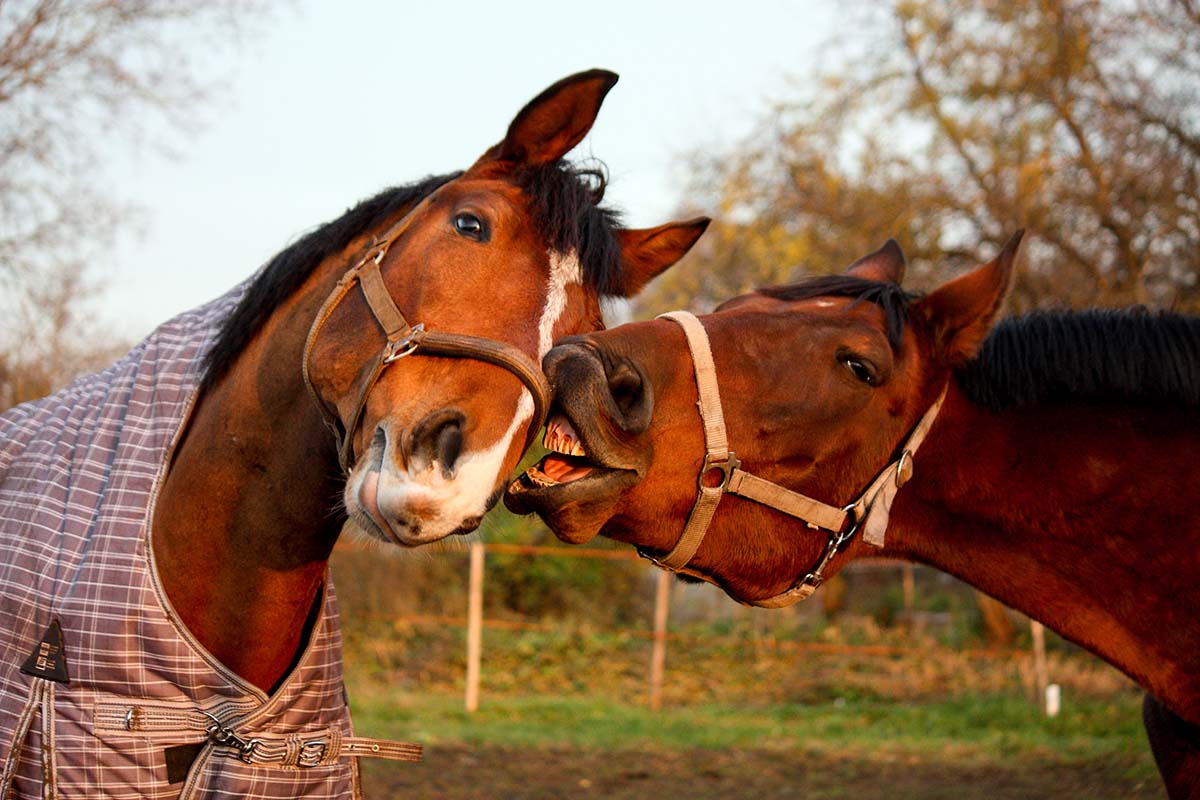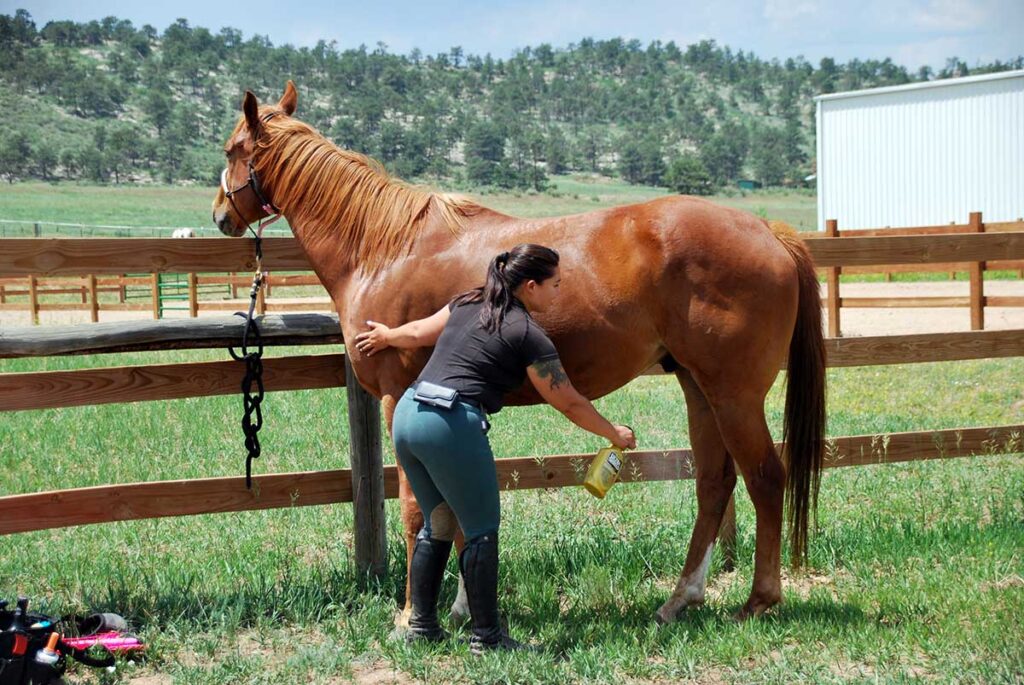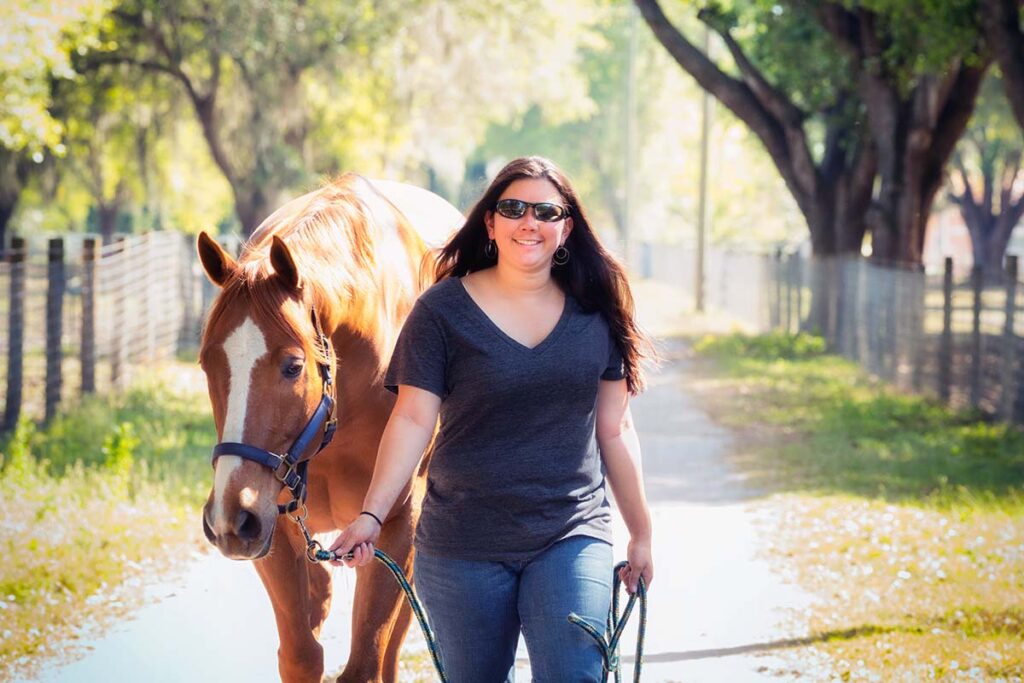Mouthy horses often lick, lip, nibble, or even bite people, ropes, or equipment. Some horse owners find the behavior funny, others annoying. In some situations, it can even become dangerous. If your horse is mouthy, here are some things you should and should not do when dealing with the problem.
Do: Understand why it happens.
Clearly, horses do not have hands. In light of this, they use their mouths to do many things we use our hands for in similar situations.
For example, while we might use our hands in playful social interactions with others—poking, grabbing, teasing-–horses might play using their mouths. As horses do not understand that this is not how people play, they might try to engage playfully with the person in this mouthy manner. To make matters worse, if the person responds by smacking the horse, the horse might think he or she is playing back with them.
Just as we humans do, when horses are in pain, stressed, or anxious, they might fidget, using their mouths to do so. After repeated experience, stressed horses can also learn that mouthing leads to a delay in an unpleasant event happening. A common example is the horse that mouths the halter as it is brought toward their head, resulting in a small delay before they are haltered and readied for training.
Two common practices can also result in mouthy behavior:
- Playing with, touching, or rubbing a horse’s muzzle.
- Not understanding how to correctly hand-feed food and/or use positive reinforcement during training.
It’s important to understand that in both situations, the problem is how these acts (touching, hand-feeding food) are carried out, not the act itself.
Do: Consider the root cause.
Consider the root cause for the individual horse before trying to resolve the issue. Finding the cause of mouthy behavior is best done with the help of a qualified equine behavior professional. He or she can figure out why a horse is being mouthy and recommend the best ways to overcome the problem.
Do: Use suitable training approaches.
Depending on the root cause of the mouthing, behavior professionals might recommend different approaches. For example, providing a horse with appropriate social outlets and helping the owner become more aware of how they are interacting with the horse can help address mouthiness related to horse-human social interactions. Helping horses overcome anxiety and fear in certain situations can address anxiety-driven mouthiness. If pain was an underlying factor, even after resolving the source of that pain, horses might still be mouthy due to fear of feeling the pain again.
Behavior professionals use techniques such as counterconditioning and systematic desensitization to help horses overcome these “pain memories.” All these methods address root causes and help the horse (and sometimes the person) learn different, proper ways of behaving.
Don’t: Punish the horse.
Avoid training techniques that involve punishment. The internet is rife with articles and videos promoting punishment-based suggestions for the problem. Any technique that relies on applying an unpleasant consequence to the horse the moment they mouth, such as smacking, backing the horse up rapidly, moving their feet, etc., relies on punishment. Here are just a few reasons to avoid using punishment to address a mouthy horse:
- It cannot address why the behavior is happening.
- It only says “No,” and cannot tell the horse what he should do instead in the situation.
- To be effective, punishment must happen every time the unwanted behavior occurs. It also must be an unpleasant enough intensity that it prompts the horse not to want to repeat the behavior. This usually means hurting or scaring the horse.
- Punishment can cause the horse to fear the trainer or anything associated with the event. This can damage trust between horse and person. It can also greatly worsen the problem—particularly if you haven’t first addressed underlying pain, stress, or fear—and can result in increased aggression.
Take-Home Message
When dealing with a mouthy horse, behavior professionals recommend finding the root cause and applying low-stress, evidence-based techniques to resolve the issue. These approaches are effective and carry no risk of worsening the problem or creating new problems.
Related Reading:
- Understanding the Basics of How Horses Learn
- The Horse That Pulls Back When Tied: Do’s and Don’ts
- From Body Language to Behavior: How Horses Communicate
Lauren Fraser, MSc, FFCP, has helped people understand horse behavior problems since 2006. With a background working as a horse trainer, an MSc in clinical animal behavior, and more than a decade working as an equine behavior consultant, Lauren’s approach gets to the heart of why horses behave the way they do and addresses issues using low-stress methods. Lauren also guest lectures at universities, presents at conferences, and creates educational programs for horse owners and equine professionals.
Are you enjoying this content? Sign up for My New Horse’s FREE newsletter to get the latest horse owner info and fun facts delivered straight to your inbox!








